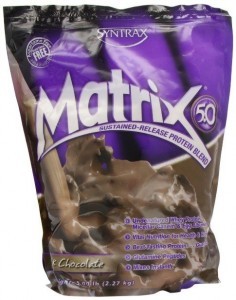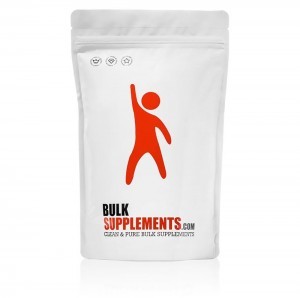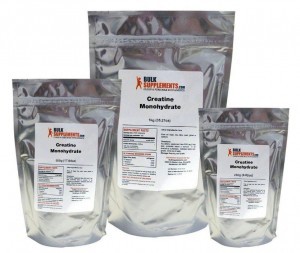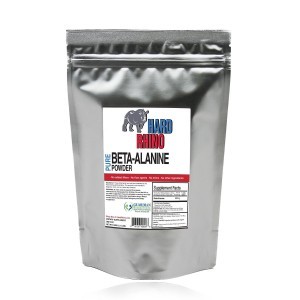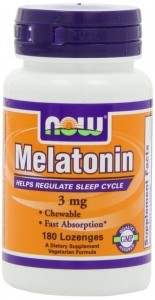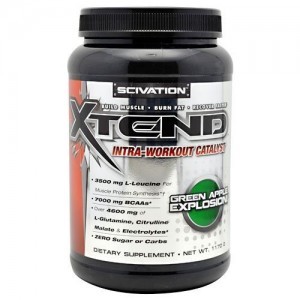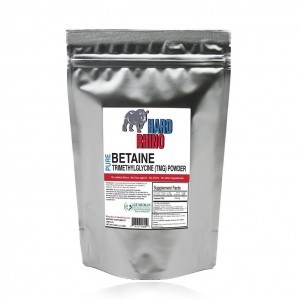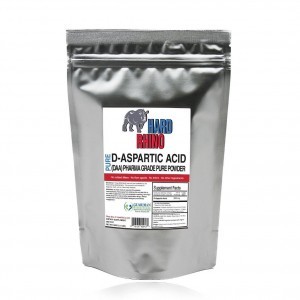In this installment of the Powerlifting Nutrition Series, we’re going to tackle one of those most controversial areas of nutrition: supplementation.
If you’d rather watch than read:
Do Supplements Work?
Supplements have been used to bleed the pockets of those new to the health and fitness game for decades. They’re highly marketable, highly profitable, and they are one of the few ways that iron sport athletes can easily monetize their brand. There’s generally only one problem with supplements: most of them are near useless or simply aren’t worth the money people charge for them.
Contrary to mainstream opinion, supplements are easily the least important factor in maximizing your nutrition for powerlifting performance. Why? Because supplements can only… supplement another part of the nutritional hierarchy. For example, multivitamin or fish oil pills might help improve the micronutrition aspect of nutrition. A protein supplement, such as whey protein powder or protein bars, might help you reach your macronutrient goals. Creatine supplementation can be useful because it is hard to eat all the raw meat necessary to top off your stores naturally. Look, you get the picture. Supplements… supplement.
With that said, I feel like there has been an anti-supplement trend that is a bit misguided. Frankly, it is true that there are VERY few supplements with STRONG support in the literature. Because most honest people out there want to prevent you from wasting your hard earned money on supplements that might work, they just don’t mention them at all.
However, as you might have gathered from the rest of my articles, videos, and books, I am all about using any fair and legal means necessary to gain an edge. While I will explicitly delineate between supplements with strong support and supplements with weak support, I will be presenting more potential options here than the stereotypical advice of: “Lift heavy, take a multi, bro”.
Before we move on, I’d like to give a shout out to what I believe is the single best supplement review service on the internet today: Examine.com. Examine offers research-based, critical reviews not only detailing which supplements have support in the literature, but also to what degree the literature supports each supplement. If you’re going to do your own research on supplements, Examine is the place to start.
Whey Protein for Powerlifting
Literature Support: Strong
What: Whey protein is a component of milk protein. It has a high concentration of leucine and is perhaps the single most bioavailable form of protein. Translation? Whey is a great way to supplement your diet with additional protein if you find yourself lacking.
Why: While there is no real need for whey protein, I supplement my diet with it quite frequently. Frankly, when you’re trying to hit ~1.0g-~1.4g of protein per day, you can often fall a little short. A whey supplement allows you to boost your totals easily without drastically driving up your carb and fat intake. Basically, whey just makes it easier to hit your macros. Even though this is its only purpose, I still consider it perhaps the most useful supplement on the entire market. Because, as you should know by now, hitting your macros is more important than the supplements you take in the first place.
How: There is really no need to take more than ~1-1.5 scoops of most whey protein supplements. After all, getting more than ~3-5g of Leucine in a single serving doesn’t do anything to increase muscle protein synthesis. You’ll need to mix the whey with some kind of liquid. I’d recommend water or milk. Cycling on and off is unnecessary.
When: Whey is a meal replacement so you’d use it at meal time either alone or in combination with food.
Recommendation: While it is perhaps not the cheapest, my favorite low carb, low fat, great tasting whey protein powder award goes to Pure Chocolate from Syntrax Matrix 5.0. The best tasting protein bars? Quest Bars and it isn’t even close.
Caffeine for Powerlifting
Literature Support: Strong
What: Caffeine is a natural stimulant derived from coffee beans.
Why: The bottom line is that caffeine reliably increases performance in athletes who haven’t developed a tolerance. There are positive effects seen nearly across the board including fat loss, endurance, and peak power output.
How: For strength enhancement, take ~5mg/kg or ~2.5mg/lbs. It doesn’t matter whether you take it in pill, powder, or liquid form. Because tolerance will eventually be developed, if you use caffeine as an ergogenic aid, consider taking a month off when you no longer feel strong effects from caffeine consumption.
When: Experiment individually, but you’ll want to take your caffeine within 30 minutes of beginning your workout. Personally, I don’t finish mine until I’m done with warm-ups.
Note: There are genetic variations in the ability to metabolize caffeine. Not all doses will affect everyone equally. To avoid any harsh side effects, start small with your dosing and build up as necessary. Some people with sleep issues would be best advised to avoid caffeine in my opinion. Even small doses can exacerbate insomnia issues in some individuals.
Recommendation: Cheapest you can get in bulk.
Creatine for Powerlifting
Literature Support: Strong
What: Creatine is a molecule that is used to help create ATP quickly. Supplemental creatine allows you to maximize your muscular stores thus resulting in an improved ability to generate ATP. Over time, this leads to increased work capacity, power output, and lean body mass.
Why: The benefits of creatine are primarily indirect. Because you’ll be able to generate ATP more quickly, over time, you’ll be able to do more reps per set and more sets per workout. This will lead to increased strength and muscle mass over time.
How: Take 5g daily. Cycling on and off is unnecessary.
When: Doesn’t matter. Creatine builds up in the system over time.
Recommendation: Buy the cheapest creatine monohydrate you can find in bulk. I use Bulk Supplements.
Beta-Alanine for Powerlifting
Literature Support: Strong
What: Beta-alanine is one of the essential building blocks of muscle carnosine. Carnosine acts as a celluar buffer to acid in the muscles. When you lift, ATP is broken down and lactic acid is released. Carnosine combats the acidic effects of the aforementioned byproducts thus delaying time to fatigue.
Why: If you perform any sets that take ~60+ seconds (~8+ reps), or if you’re using the GPP/HIIT protocols from ProgrammingToWin, Beta-Alanine is going to help increase performance or you might be able to squeeze out another rep and/or perhaps last a few more sets.
How: Take 6g daily split up into 2-3 doses. I typically take 3g in my pre and post workout shakes. Cycling is unnecessary.
When: Doesn’t matter. Beta-Alanine helps build up carnosine over time.
Recommendation: Buy the cheapest Beta-Alanine you can find in bulk. I use Hard Rhino.
Vitamin D3 for Powerlifting
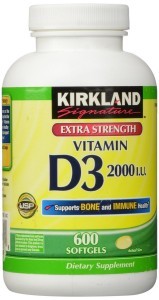
Vitamin D3 is an essential supplement for those who are deficient due to lack of sunlight or any other reason.
Literature Support: Strong
What: Vitamin D3 is one of the many essential vitamins and nutrients that we need. Sunlight is typically the primary source of Vitamin D3. For those living in areas without a lot of sunlight, you can potentially benefit greatly from Vitamin D3 supplementation.
Why: Vitamin D3 supplementation, for those who are deficient, has been shown to improve mood, memory, cognitive function, and testosterone levels. As a lifter, having your hormones function optimally is going to be of great importance to maximizing your progress in the gym. Additionally, Vitamin D3 could have massive impacts on your general quality of life if you truly have a deficiency.
How: Supplement with Vitamin D3 (cholecalciferol). You should be taking anywhere from ~1,000iu-~5,000iu per day based on your particular ethnic demographics and exposure to sunlight. Overdosing is possible, but nearly impossible at doses under 10,000iu per day. Take it alongside a fat source. Consult with your general care provider for recommendations more specific to your situation. Cycling is unnecessary.
Recommendation: Take Vitamin D3 in liquid form or capsule form from the cheapest provider you can find. I use Kirkland Brand.
Fish Oil for Powerlifting
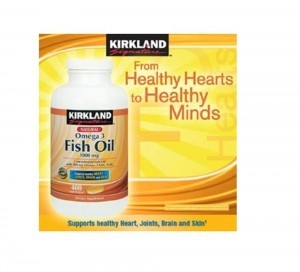
Fish Oil, for those whose Omega Fat ratios are out of balance, can positively improve almost every aspect of life.
Literature Support: Strong
What: EPA/DHA supplementation involves trying to balance your omega 3:6 fat ratios. The typical diet, particularly in the West, is too high in Omega 6s. Supplementing with fish oil, a great source of Omega 3s, can help bring your balance closer to the recommended 1:1 amount.
Why: For those who do not consume enough fish, or who simply eat too much Omega 6 fatty acids, consuming fish oil can have a long list of general health benefits including: joint health, mood, and improved brain function. Improvements in general health can indirectly benefit the competitive lifter over time.
How: While some people fall into the trap of “more is better” with fish oil, consuming more than 1-2g of EPA+DHA (total) is likely unnecessary for those seeking the general health benefits. Cycling is unnecessary.
When: Doesn’t matter. The benefits are long term due to the aforementioned improved ratios.
Recommendation: Find the cheapest brand possible. I use Kirkland Brand.
Melatonin for Powerlifting
Literature Support: Strong
What: Melatonin is a non-addictive sleep aid that helps regulate your sleep patterns. If you struggle with falling asleep or getting a good quality of sleep, Melatonin may indirectly benefit you. Many people have irregular sleep habits due to the way our society is structured. Melatonin production is very sensitive to light and many of us are often exposed to light all day long even before we’re trying to sleep. If you have trouble falling asleep quickly or deeply, or an irregular schedule, melatonin supplementation can help you get a better quality of sleep. If you already have excellent sleep hygiene, it likely won’t do much for you.
Why: Quality and quantity of sleep is probably the number one determinant of your overall ability to recover from hard training. Sleep should be sacred to you as a lifter. If you’re not already familiar with sleep hygiene, you should be. Ultimately, melatonin is somewhat of a band-aide to help you with missteps in sleep hygiene. Regardless, anything you can do to improve your quality of sleep is well worth it in my opinion.
How: Melatonin is often available in pill form or as a chewable tablet. Dosing is individual, but the recommended range is between 500mcg and 5mg. Start lower and work your way up. Cycling is unnecessary.
When: Take Melatonin ~30 minutes before attempting to sleep.
Recommendation: Buy a cheap generic brand. NOW Foods has a great option on Amazon.
Multivitamins for Powerlifting
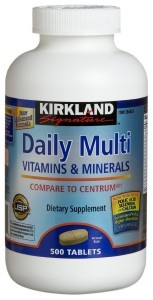
Multivitamins are the most used supplement that there is. They can be useful under certain circumstances.
Literature Support: Medium
What: “Multivitamin” is a generic, catch-all term for any supplements that contains a variety of the essential daily vitamins and minerals. Particular products can vary significantly.
Why: You should really only consider a multivitamin if you’re in a heavy caloric deficit that doesn’t allow for a great variety of foods (or a lot of food in general). For the vast majority of people, a multivitamin is actually unnecessary. If you’re eating a well-balanced diet, you’re already getting the micronutrients you need. The exception to this rule is if you have a confirmed vitamin or nutrient deficiency. However, in these cases, I’d recommend supplementing with that particular nutrient directly rather than relying on a multivitamin. For deficient individuals, multivitamins can make a noticeable improvement to the quality of your life.
How: Most multivitamins involve taking 1-2 pills per day. Cycling is unnecessary.
When: Usually, multivitamins are taken with food.
Recommendation: A generic brand will work just fine. Don’t overpay for something that is likely unnecessary in the first place. I use Kirkland Brand.
BCAAs for Powerlifting
Literature Support: Weak
What: Branched Chain Amino Acids (BCAAs) generally refers to the combination of Leucine, Isoleucine, and Valine. These are free form amino acids that do not get metabolized or used by the small intestine, liver, or kidney to any appreciable degree due to lack of the appropriate enzymes in these tissues.
Why: According to research done by Dr. Norton, and quoting from my buddy (and soon-to-be Doctor) Jordan Feigenbaum, “[BCAAs] spike blood amino acid levels sky high very shortly after oral ingestion and work almost exclusively at the level of skeletal muscle to stimulate muscle protein synthesis without interfering with the refractory period”. What does that mean? Well, theoretically, it means that BCAAs can get into your system, stimulate muscle protein synthesis, and still clear the system before you’re ready for that next dose of dietary protein. In other words, you can potentially build more muscle while you’re waiting those ~4-6 hours in-between meals.
How: Mix the BCAA powder into water and drink it. Cycling is unnecessary.
When:
Pre/Post Workout: ~10g of BCAAs
In-Between Meals: ~5g of BCAAs
Note: This is going to be controversial, but I think BCAAs are just as important to my supplement stack as more established aids such as creatine and beta-alaine. I firmly believe that BCAAs have made a measurable difference to my overall recovery ability and the amount of muscle I can hold on my frame. My training logs confirm this. While Dr. Norton’s research is heavily criticized primarily because it is in rodents, the underlying physiological mechanisms for why this would work are sound in my opinion. Read more of Norton’s take here. You’ll have to make your decisions, but I strongly recommend BCAAs to all my athletes and I’m not going to back down from that recommendation here.
Recommendation: I highly recommend Scivation Xtend. It tastes amazing and the ratios are all correct.
HMB for Powerlifting
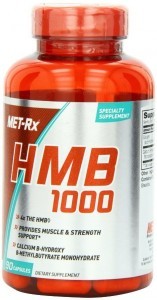
HMB is an incredibly promising anti-catabolic substance that hasn’t fully been vetted by the research yet.
Literature Support: Inconclusive
What: HMB (?-Hydroxy ?-Methylbutyrate) is a component of Leucine that inhibits muscle breakdown. Essentially, HMB is an anti-catabolic supplement.
Why: Dr. Jacon Wilson’s lab has shown that, in combination with an effective periodization program, that HMB supplementation is potent when it comes to preventing muscular damage in response to novel training. In other words, HMB isn’t directly contributing to anabolism but, by significantly decreasing muscle damage, trainees can train more frequently, with more volume, and with higher loads. It is THESE factors that will can potentially lead to measurably improved performance in the gym. If you’re following a relatively high frequency, high volume training program, such as the PTW programs, and you’re not yet adapted to the new stimulus, HMB is something to consider in my opinion.
How/When: HMB should be taken daily in three separate 1g doses. On training days, take 1g before training. Cycling on and off is unnecessary.
Note: Keep in mind that total your total muscle mass is a product of muscle protein synthesis minus muscle protein breakdown. HMB is most effective when combined with training and supplementation that is maximizing the muscle protein synthesis part of the equation. When muscle protein synthesis is maximized, HMB can help increase net protein accretion by decreasing protein breakdowns. Alone, you wouldn’t expect to see as potent of results in the studies.
Note #2: I’d also point out that there has been some rather unbelievable research produced around this product lately which likely vastly overstates its effectiveness.
Recommendation: Ideally, you’d use HMB-FA 30-45 minutes before a workout, but it isn’t available commercially yet. As such, I’m currenly using Met-Rx’s product as they originally put HMB on the market.
TMG / Betaine for Powerlifting
Literature Support: Weak
What: TMG (Trimethylglycine), also known as betaine, is a methyl derivative first isolated from beets. However, it is found it a variety of other foods as well. The exact mechanisms behind why TMG has been demonstrated to occasionally have positive impacts on strength, body composition, and work capacity aren’t fully understood. There are several competing theories, but the most probable revolve around increased creatine synthesis and/or the osmolytic properties of betaine (translation: it optimizes cellular hydration which improves function under stressful conditions).
Why: The truth is that out of all the supplements I’m going to recommend, the support for Betaine is the most equivocal. The results just aren’t that consistent from study to study especially in terms of the improvements in body composition and peak power output. However, multiple studies have found that betaine has had a positive impact on work capacity – particularly when paired with metabolically challenging workout protocols. In other words, higher reps and/or high volume (with potentially limited rest periods). Frankly, I know several top iron athletes who both personally supplement with betaine and recommend it to their athletes due to the myriad potential benefits. I’d be remiss not to mention it here. You’ll have to decide for yourself if it is worth it given the inconsistent support in the literature.
How/When: Take 1.25g both pre and post workout. Cycling is unnecessary.
Recommendation: Buy cheap and in bulk. I use Hard Rhino.
D-Aspartic Acid for Powerlifting
What: D-Aspartic Acid is an amino acid that helps regulate testosterone synthesis.
Why: The research strongly shows that you can transiently increase testosterone with DAA supplementation to the tune of a 30-40% increase. However, there is no data to show that this increase in testosterone actually correlates to increases in strength or improvements in body composition. Additionally, further research is required to fully understand the long term effects of DAA supplementation.
How/When: Take 3g per day at any point in the day for ~4-6 weeks. Cycle off for six weeks before resuming use.
Note: Look, as I’ve noted above, this stuff does increase testosterone, but, ultimately, we don’t have any evidence that increasing testosterone within physiologically normal ranges actually does anything. Nonetheless, if you’re maximizing other aspects of your supplementation and micronutrition, this transient boost in testosterone may prove beneficial to your mood and general well-being if nothing else. I think it would be silly to go without mentioning one of the few supplements out there that demonstrably and naturally improves testosterone levels.
Recommendation: Find a cheap generic brand. As usual, Hard Rhino is awesome.
Powerlifting Supplements Summary
As I mentioned at the very beginning of this article, supplements merely supplement proper training and nutrition. Absolutely nothing I’ve listed here is going to make or break your training. At best, you’ll get a few percentage points of an advantage over the course of a long hard training year. You don’t NEED to buy any of this stuff. However, that said, a few percentage points is often the difference between winning and losing in the IPF these days.
In sum, here are all the supplements I will potentially recommend to my coaching clients:
- Whey Protein
- Caffeine
- Creatine
- Beta-Alanine
- Vitamin D3
- Fish Oil (EPA/DHA)
- Melatonin
- Multivitamins
- BCAAs
- HMB
- TMG / Betaine Anhydrous
- D-Aspartic Acid
Did you enjoy the Powerlifting Nutrition Series?
If so, I highly recommend you check out our eBook: EatingToWin. The book contains absolutely everything you need to know about how to set up the optimal diet for YOU personally as a powerlifter, how to identify the right weight class to maximize your competitiveness, how to cut weight like a PRO so that you can drop a weight class without performance loss, and, of course, an entire section on recommended supplements with the supporting evidence behind each recommend. Grab your copy now!
Like this Article? Subscribe to our Newsletter!
If you liked this articled, and you want instant updates whenever we put out new content, including exclusive subscriber articles and videos, sign up to our Newsletter!
Questions? Comments?
For all business and personal coaching services related inqueries, please contact me:
Table of Contents
Powerlifting Nutrition: How To Pick Your Weight Class
Powerlifting Diet: Cutting and Bulking
The Best Way To Measure Body Fat For Powerlifting
When To Move Up A Weight Class
How To Cut Weight For Powerlifting: 24 Hour and 2 Hour Weigh Ins
How To Diet For Powerlifting: Calories, Reverse Dieting, and More
Setting Up Your Powerlifting Macros
Meal Frequency and Nutrient Timing in Powerlifting
Eating Healthy for Powerlifting
Best Powerlifting Supplements
